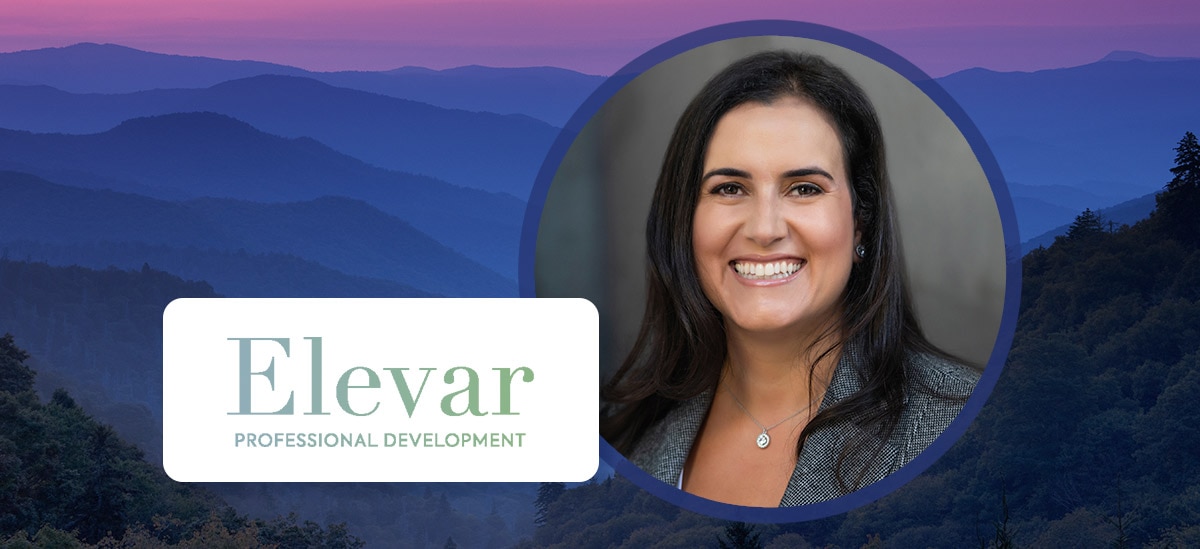
After spending more than 20 years in the corporate world — leading national sales teams, driving global strategy, and acting as mentor and coach to emerging and evolving leaders, Nallely Gass decided to establish her own professional development business, Elevar Professional Development, in 2019.
“The word ‘elevar’ is Spanish for ‘elevate.’ I believe every person has what they need to succeed inside of them. They may just need someone to draw it out of them,” explains Gass. “We are a high-performer fine-tuner: We work with entrepreneurs and executives who are established in their positions or looking for their next career opportunity. Depending on their goals, we help them hone their professional skills, understand what they want, identify their values, align with their priorities, build their confidence or figure out how to lead their teams more effectively.”
What inspired you to establish Elevar Professional Development?
I started the company after one of my friends, the CEO of a global nonprofit, said, “You’re always coaching me and giving me advice. You need to start your own company and do that for other executives.” It made me think: Building others up — helping them become their best — has always been a passion of mine. I decided to take the leap of faith. Part of the reason is that I’ve often been on panels of Latinas, mothers or women in general, and I think we’ve always felt pressured to reach some pinnacle of professional and personal achievement that has been defined by someone else. At one pivotal moment, I remember thinking, No. I get to decide what level I want to get to. I get to decide what work-life balance means to me. I wanted to help inspire and empower others to feel that way, too, and take control of their own destiny. The idea that I could do that on a full-time basis, as my job, motivated me to establish Elevar.
What differentiates your business?
We are a team of three women of color who share expertise across a range of disciplines and have a lot of personal experiences that help us empathize with others. For example, I am Mexican, I am a woman, I am a mom, and I have worked in corporate America, so I can relate to the challenges associated with being in any of these positions. When we’re looking for someone to help us, it can be great to find someone who has gone through it themself.
Whom do you rely on for business counsel?
At all the corporations where I’ve worked, there was a finance team. When I went out on my own, I needed to build my own finance team. So I hired a really good small business accountant, who helps with my taxes and bookkeeping, and I joined PNC, where I have an amazing dedicated business banker. He has set us up with solutions for invoicing and managing credit card payments, and makes quick work of the financial tasks I used to dread doing. As an entrepreneur, you have to focus on doing what you do best and find people you trust to provide the specialized support you need.
What is your vision for your company’s future?
My vision is for this company to grow right along with the business leaders we coach, and to expand our presence through referrals of satisfied clients. We plan to continue to build on our corporate contracts, create more workshops, reach more people, and create a wave of positivity and confidence among everyone we touch.
What do you find most gratifying about being an entrepreneur?
I grew up in a household with immigrant parents who worked factory jobs (my dad often had two or three jobs at a time). I remember how special the days were when my mom could pick me up from school, so when I became an entrepreneur, I knew that I wanted to pick my children up every day. No matter what I’m doing during the workday, at 3 p.m., I’m in front of their school, waiting to bring them home and spend time with them. If that means working later in the evening, then so be it. Part of giving our children a better life is sharing our time with them. Being an entrepreneur enables me to do that.
What advice would you offer aspiring entrepreneurs?
Do it. Don’t be afraid to fail. When people hesitate to act on their dream of becoming an entrepreneur, I ask them what they were doing before. “That’s your safety net,” I tell them. “You could always go back to that if you needed to.” We need to change the mindset that taking a step back is failure. If you could continue your successful career going back to what you used to do, that isn’t failure; rather it shows that you have built a community and career path that stand the test of time. That’s a gift. My grandfather would say, “If you go to Vegas, the people who bet scared will always lose.” The same goes for business: If you go in scared, that fear can overwhelm you. It takes a certain brand of gusto to start your own company. Let that gusto carry you through, knowing that just by doing it you did something the majority of people will never accomplish.



